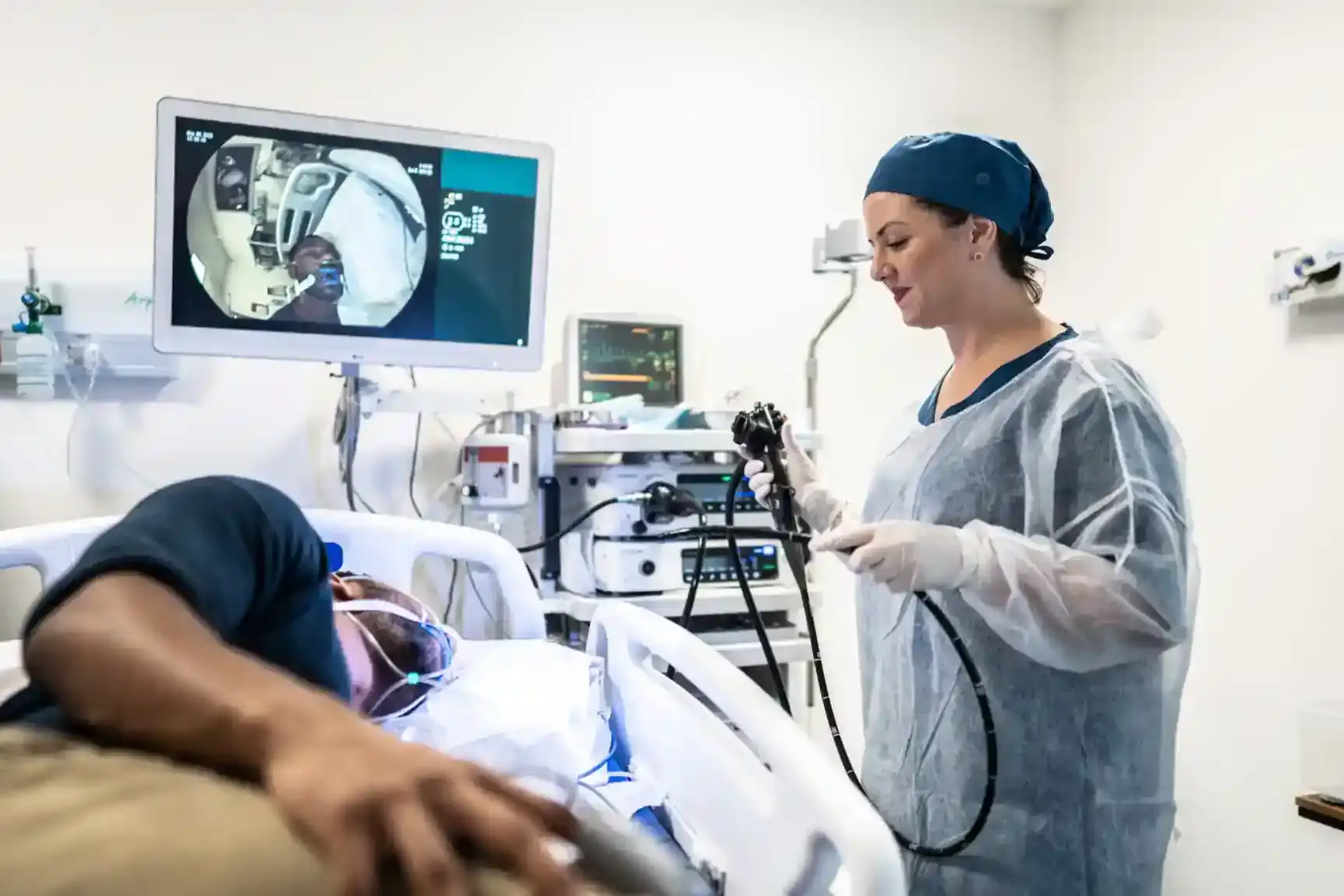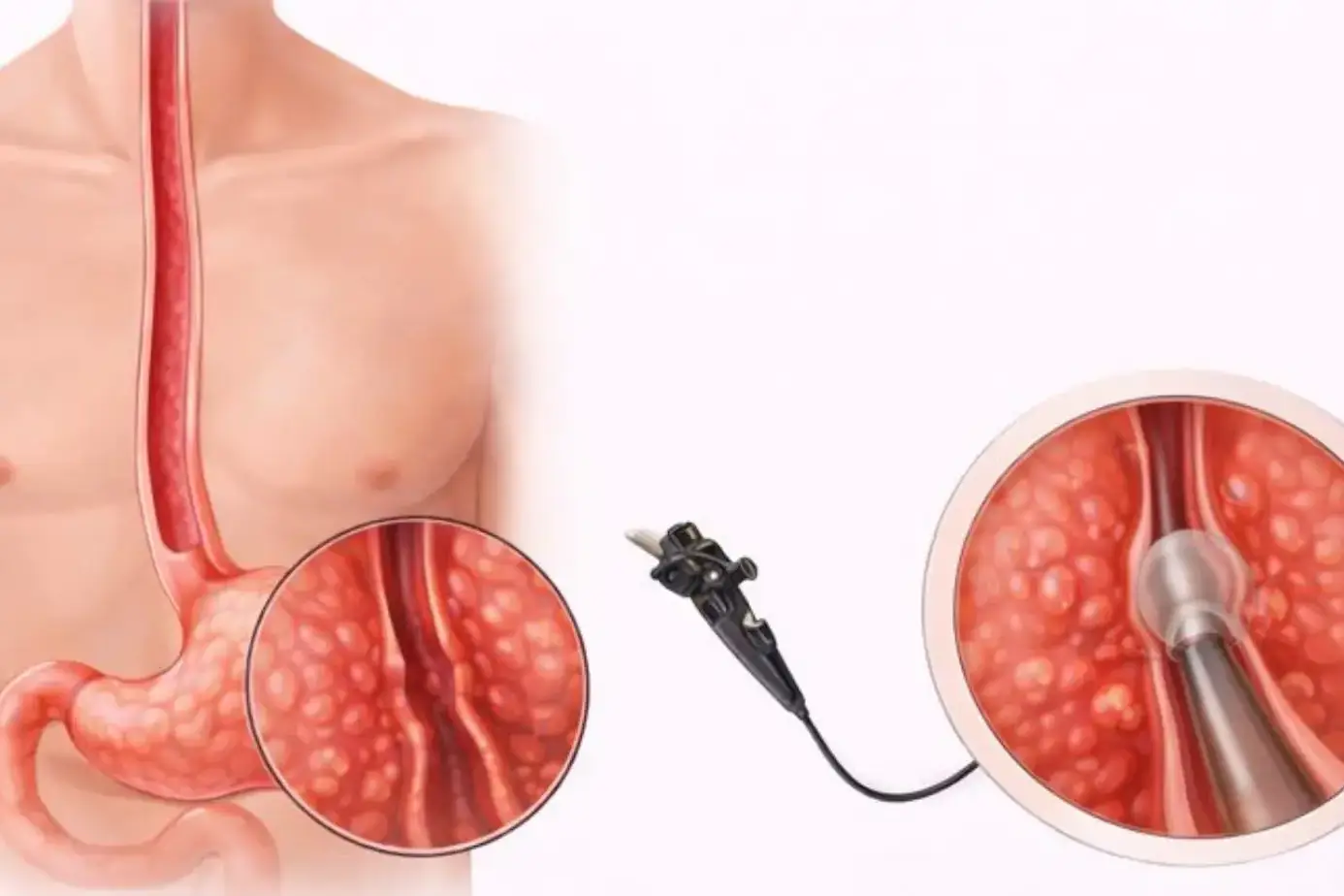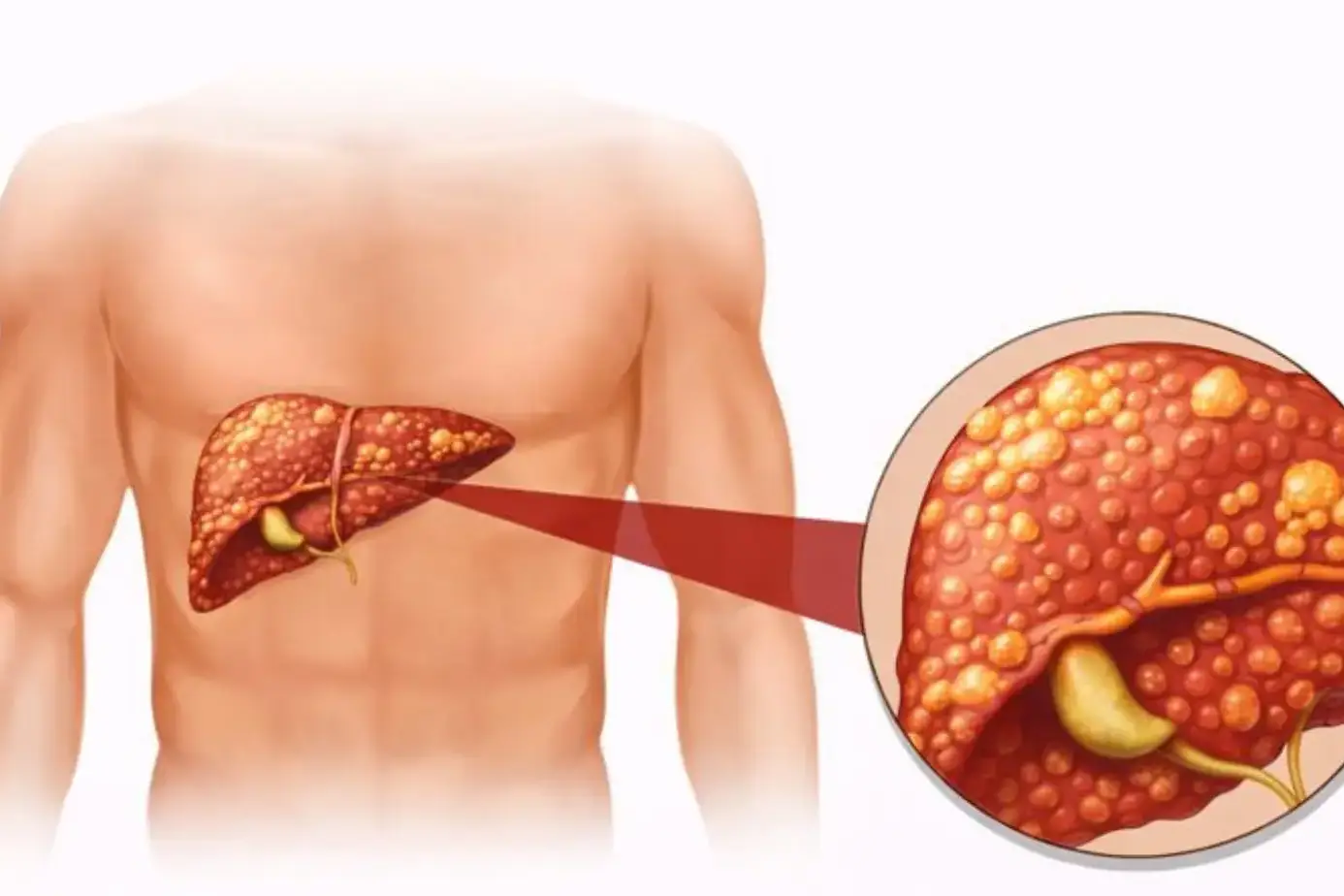Keeping your digestive health in check is key. A colonoscopy is a must-do screening. It finds colorectal cancer and other issues early, when they’re easiest to treat. But, finding a good gastroenterologist can be hard.
Table of Contents
ToggleIn this article, we’ll help you find the best gastroenterologist near you. This ensures you get top-notch care.
If you need a colonoscopy or have digestive health worries, this guide is for you. We’ll cover why screenings are important, what to look for in a gastroenterologist, and how to get ready for your visit. By the end, you’ll know how to find the best “colonoscopy near me” and keep your health in check.
Understanding the Importance of Colonoscopy
Regular colorectal cancer screening through colonoscopy is key for good digestive health. It’s the top way to find and stop colorectal cancer early. This helps catch polyps or cancer in its early stages, leading to better treatment and results.
Regular Screening: A Key to Early Detection
Doctors say you should get a colonoscopy every 10 years, starting at 45. This check can save your life. It finds and removes polyps before they turn into cancer. By following colonoscopy guidelines, you can keep your digestive health in check and lower your cancer risk.
Factors That Influence Colonoscopy Recommendations
Even though colonoscopy is important, your own situation can change how often you need it. Your doctor might suggest more frequent tests if you have a family history of cancer or inflammatory bowel disease. Talking with your gastroenterologist helps make sure your colonoscopy plan fits your health needs.
Choosing the Right Gastroenterologist
Finding the right gastroenterologist is key for your digestive health. They will do your colonoscopy. It’s important to pick someone who knows what they’re doing for your safety and comfort.
Here are some key factors to consider when choosing a gastroenterologist for your colonoscopy:
- Board Certification: Make sure your gastroenterologist is certified by the American Board of Internal Medicine (ABIM) or the American Osteopathic Board of Internal Medicine (AOBIM). This shows they have the right training and skills.
- Experience in Colonoscopies: Ask how many colonoscopies they’ve done. More experience means they’re better at it.
- Patient Reviews and Recommendations: Look up online reviews and ask for recommendations. Patient stories can tell you a lot about the doctor’s care.
By choosing a well-qualified gastroenterologist, you’ll be in good hands. You’ll get the best care for your digestive health.

Preparing for Your Colonoscopy Appointment
Getting ready for a colonoscopy is key to a good outcome. Your gastroenterologist will give you all the details on what to eat and how to clean your colon before the test.
Pre-Procedure Instructions and Diet
Before your colonoscopy, you’ll follow a special diet. This diet is clear liquids like broth, juices, and gelatin. You’ll also drink a bowel-cleansing solution the day before to clean your colon.
What to Expect During the Colonoscopy Procedure
The day of your colonoscopy, the test takes about 30 minutes. You’ll be under sedation, so you won’t feel any pain. A thin, flexible tube with a camera will look at your colon and rectum.
After the test, you’ll need someone to drive you home. The sedation makes it unsafe for you to drive.

Locating Reputable Gastroenterology Practices Near You
Finding a good gastroenterologist for your colonoscopy is key. Start by looking at online reviews and ratings. They can tell you a lot about a doctor’s skills and care.
Also, ask your doctor for recommendations. They can point you to trusted gastroenterologists in your area. This can help you find someone who fits your needs.
Online Reviews and Referrals
Online reviews can show you what a practice is like. Look for comments on:
- How well the doctors talk and listen
- The friendliness and help of the staff
- How easy it is to schedule and check in
- The cleanliness and comfort of the place
- How happy patients are with their care
Reading these reviews helps you find a practice that offers great care for your colonoscopy.

Colonoscopy Near Me: Finding Convenient Locations
Finding a place for your colonoscopy is easy with many clinics around. It’s great when you can pick a time that works for you. This makes your whole experience better.
Many clinics have several locations. This means you can find one near your home or work. It’s super helpful if you have to take time off or have other things to do.
Some clinics even let you book online. This makes it easy to find a time that fits you. You don’t have to call or deal with complicated schedules.
When looking for a clinic, think about their reputation and the doctors’ qualifications. Good care is important for your colonoscopy. This helps you make a smart choice.

Looking for a clinic with easy locations and online booking makes things simpler. It lets you focus on your health and feeling good.
Factors to Consider When Selecting a Gastroenterologist
Choosing the right gastroenterologist is very important for your health. When looking for a colonoscopy provider, think about a few key things. This will help you get the best care possible.
Experience and Specialization
Your gastroenterologist’s experience matters a lot. Find someone who has done many colonoscopies and knows a lot about gastroenterology. A skilled doctor will make you feel safe and confident during your procedure.
Facility Accreditation and Safety Standards
The clinic where you’ll have your procedure is also important. Look for a place that’s accredited by groups like the American College of Gastroenterology. It should also follow strict safety rules. This shows the clinic is serious about quality and safety.
By looking at a gastroenterologist’s experience and the clinic’s standards, you can make a good choice. This choice is important for your digestive health.

Insurance Coverage and Cost Considerations
When you think about getting a colonoscopy, the cost is a big deal. Luckily, many health insurance plans cover these screenings. This means you might not have to pay much or anything at all. But, it’s key to know the details of your insurance to avoid surprises.
To start, contact your insurance provider to ask about colonoscopy insurance coverage. This will tell you if you have to pay anything or if it’s all covered. You’ll also want to know if there are any extra steps you need to take, like getting a referral.
If you don’t have insurance or it doesn’t cover the whole cost, don’t worry. Many gastroenterology offices have financing options or payment plans. These can include:
- Flexible payment schedules
- Discounts for upfront or cash payments
- Partnerships with healthcare financing companies
Looking into these options can help you find a way to pay that works for you. Remember, a colonoscopy is important for your health. It can catch problems early, so it’s worth finding a way to make it affordable.
Follow-Up Care and Monitoring
After your colonoscopy, your gastroenterologist will share the results. They will also suggest any follow-up care or monitoring. This is key to keeping your digestive health in check and addressing any issues quickly.
Understanding Your Colonoscopy Results
Your gastroenterologist will go over the colonoscopy findings with you. They will explain what it means for your care. This might include:
- When you should have another colonoscopy, based on your colon’s health and any found issues.
- Referrals to specialists, like a colorectal surgeon, if growths or polyps were found.
- Advice on diet and lifestyle changes to support your digestive system and prevent future problems.
Talking openly with your healthcare team is vital for ongoing digestive health monitoring. Make sure to ask questions and share any worries about the colonoscopy results or post-procedure care.
By being proactive and following your gastroenterologist’s advice, you can manage your digestive health well. This helps catch problems early and keeps you healthy in the long run.
Conclusion
Scheduling a colonoscopy with a good gastroenterologist is key for your digestive health. It helps screen for colorectal cancer. By knowing the importance of colonoscopy, finding a local doctor, and getting ready, you help your health.
Finding the right gastroenterologist is very important. Look for doctors who care about their patients and follow safety rules. Check online reviews and ask your doctor for recommendations to find a good area practice.
If you have questions or worries about your scheduling colonoscopy, talk to your healthcare team. They want to help you and make sure you’re okay. Take care of your health by getting regular colonoscopies and working with your doctor.
FAQ
What is the importance of regular colonoscopy screenings?
Colonoscopy is key for finding cancer early. It spots polyps or cancer in its early stages. This lets doctors treat it quickly. Getting screened every 10 years, starting at 45, keeps your digestive system healthy.
How do I choose the right gastroenterologist to perform my colonoscopy?
Choose a board-certified gastroenterologist with lots of experience. They should have great patient reviews and be recommended by others. Also, check the facility’s safety and standards.
What should I expect during the colonoscopy procedure?
The colonoscopy takes about 30 minutes. You’ll be sedated to stay comfortable. Your doctor will tell you what to eat and how to clean your bowels before the test.
How can I find a convenient colonoscopy location near me?
Look for clinics with many locations. This makes it easier to find a time and place that works for you. Many clinics also have online booking tools.
How will my insurance coverage and the cost of the procedure be handled?
The cost of a colonoscopy varies. It depends on where you are, your insurance, and the doctor. Check with your insurance to know what you’ll pay. Some clinics offer payment plans to help with costs.
What kind of follow-up care and monitoring can I expect after my colonoscopy?
Your doctor will talk to you about the results after the colonoscopy. They might suggest more tests or visits. Keeping in touch with your doctor is important for your health.
About The Author

Medically reviewed by Dr. Nivedita Pandey, MD, DM (Gastroenterology)
Senior Gastroenterologist & Hepatologist
Dr. Nivedita Pandey is a U.S.-trained gastroenterologist and hepatologist with extensive experience in diagnosing and treating liver diseases and gastrointestinal disorders. She specializes in liver enzyme abnormalities, fatty liver disease, hepatitis, cirrhosis, and digestive health.
All content is reviewed for medical accuracy and aligned with current clinical guidelines.
About Author | Instagram | Linkedin





